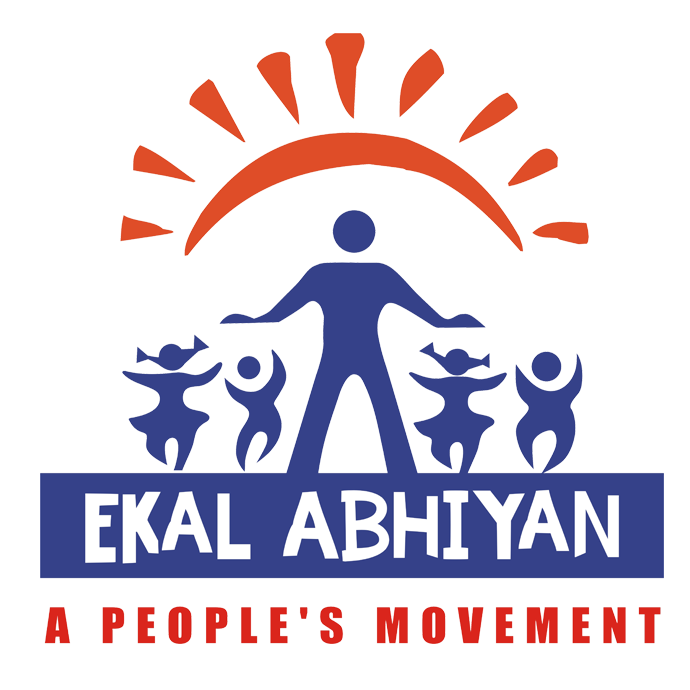
Ekal has become the largest grassroot level non-governmental education and development movement operating in the remote villages of India and Nepal. The aim of the Ekal movement is to help eradicate illiteracy from rural and tribal areas of India and Nepal based on the idea of equality & inclusiveness of all sections of society by following the philosophy of rural development.
The presence of Ekal Vidyalaya in more than 100 thousand villages in India emphasises their outreach as the largest non- governmental community development initiative. With an expansive outreach, Ekal has evolved itself into a multi-dimensional developmental initiative covering education, skill development, village development, health care and promoting sustainable agriculture.
Ekal is a model for Social Change by working in tribal and remote rural areas of India and Nepal to encourage holistic development with the help of education and integrated village development further aided by several developmental initiatives specially by providing connectivity in terms of Knowledge, Technology and Economy to rural and tribal communities. Ekal provides education through Ekal Vidyalaya, Village Development with the help of Gramothan Resource Centres, ensuring affordable and sustainable health care with the help of its Arogya Initiative and promotes culture and value system through their cultural centres. Ekal has adopted technology not only for improving functional efficiency but also to take Digital Skills in villages through physical and mobile training centres including use of ICT as an enabler for better learning outcomes.








“I visited a village in Andhra Pradesh where I was invited to visit One Teacher School – One Teacher taking class up to class 5-10 students. I went there at 7’0 Clock in the evening and it was a full moon night, the teachers got all the students outside with a blackboard started explaining about the moon and the significance of full moon.”
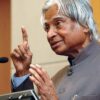
Dr. A.P.J Abdul Kalam
Former President of India
“The Ekal Abhiyan Trust helps 2.2 million children – 52 percent of them girls – access education. Many of its initiatives benefit tribal communities; all of its initiatives are a tribute to the Mahatma and his vision.”
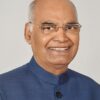
Shri Ram Nath Kovind
President of India
“Education is a strong means to empowerment and Ekal Abhiyan Trust is working in remote areas. So that children from tribal families get the opportunity to study. Their role in furthering women empowerment is laudatory. Congratulations to them for the Gandhi Peace Prize 2017”
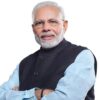
Shri Narendra Modi
Prime Minister of India
“The little episode with boys & girls from an Ekal School gives you one little message, learning even arithmetic has to blend with a lot of joy, dancing and singing and doing other things.”

Smt. Nirmala Sitharaman
Minister of Finance and Corporate Affairs
“The Union Health Minister appreciates EKAL for successfully tackling Corona Pandemic.”
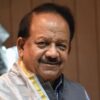
Dr. Harsh Vardhan
Union Health Minister
- After completion of three years cycle from Ekal Vidyalaya, children are well prepared to be part of formal schooling.
- If they are not going to formal schooling, Ekal ensures that these children enrolled in nearest schools to pursue focal education
- Some also come to Ekal Schools for Dance, Storytelling and Tablet use as our schools start after Govt School.
- Ekal model is not to replace the formal education model but to complement the same by creating strong interest of children in studying and curiosity to know. Being informal model, Ekal create interest as the model promote learning by doing which is an experiential learning.
- Sometimes children in early age cannot or do not attend primary schools normally due to distance from their residence
- Ekal Vidyalaya supplements with non-formal and functional education at such locations
- The other most important factor which makes Ekal Vidyalaya need in remote villages critically important is imparting ethics and moral education which leads to life skills in the early age
- Ekal is a Model for Social Change. This is not only about education but to work for holistic development of rural and Tribal India.
- The model has evolved while working with communities adding the age old wisdom drawn from traditions and culture. Model keeps evolving as time passes, like introduction of Tablets.
- The deck making process is completely decentralized and work with bottom up approach.
- A true grassroots movement with 100,000 schools and a nation-wide network
- This is a movement owned and driven by volunteers at every level.
- Complete transparency and accountability in terms of activities, financial management and impact.
- Low cost model best suited in rural conditions
- As Ekal Vidyalaya model is based on informal education and experiential learning, it creates immense interest among children towards education and school
- Children get motivated for further higher education
- Holistic way of learning ensures healthy growth of children without any burden of education
- Other initiatives like Rural Development and Health care, ensure integrated village development which provides opportunities for better livelihood.
- One of its kind model which is majorly driven by volunteers with passion to serve rural and Tribal communities
- The above factor ensure Administrative cost below 10%
- No marketing budget. Completely depend upon word of mouth or campaigns supported by volunteers.
- Involvement of local village community to oversee and monitoring of functioning of Vidyalaya makes it a viable model.
- Teachers from the same village
- No expenditures on infrastructure development
- We create a spirit of community service in Teachers and Sevavratis so our Mandhan is very low compared to normal payment to teachers which may be 5 to 10 times more.
- This is the passion of volunteering which works in a better way due to feeling of ownership, transparency in system and freedom to take decisions.
- Volunteers are driven by the deep passion of giving back to society and working for their own community
- The overall process of decision making which is completely decentralized brings the ownership
- Spirit of service to the Nation and humanity ingrained by Ekal leadership
- Ekal is the informal model of training where learning happens by doing which is known as experiential learning. We have extensive training calendar for teachers to train them to follow Ekal pedagogy
- Teacher always belong to same village and that provide an extra edge in terms of cultural values and language which lead to great rapport with children.
- Induction Training: 5-days residential training
- To train them on Ekal Pedagogy
- To make them learn activities with children
- To train them on how to effectively use teacher manual for conducting day to day proceedings at Ekal Vidyalaya
- One full day monthly training
- Two 5 days residential workshops in a year.
- Apart from regular training calendar, based on monthly evaluation of teachers, one on one training sessions are organized for those who need support.
- Multi-grade teaching is a heavily researched and studied education technique that can be mastered with training
- Ekal model is perfect example of the same where we divide 30 children in three different groups based on their age and learning levels.
- This helps them to engage more effectively in their respective groups and learn faster
- Small groups are conducive to learning
- Requires a qualified teacher and motivated students
- Brighter students of senior classes teach the junior classes.
- For teacher in Ekal, Vidyalaya is one of the activity but as volunteer, they take initiative to contribute for the development of their own village.
- Being teacher, they are respected and get acceptability in the local community which is most critical for any community led development
- Ekal model is not only about teaching but making children aware about health and value education which provides a direct connect with their respective families.
- Teacher helps in mobilizing the village community for any intervention related to village development, conducting of awareness program by Ekal.
- The quality covers two aspects, first the integrity and second the level of teaching. The integrity of school operations could be ensured well when the villagers own responsibility for arranging resources and oversight for the school. The level of teaching depends upon regularity of the training camps. The Swavlamban Sangrah (raising resources by villagers) rather lends strength to quality of activities. The training team is not required to carry burden for expansion and they therefore concentrate on quality training only. The expansion and quality are not contradictory, rather are supplementary to each other.
- It is important to understand that Ekal is not about one organization but it’s a movement for the cause of rural and Tribal development wherein different organizations come together under the umbrella of Ekal Abhiyan trust driven by the common principles of Ekal.
- All national level institutions are autonomous registered institutions. The umbrella organization of all these institutions is Ekal Abhiyan Trust. All the institutions are its affiliates.
- There is a Kendriya Trust Board, namely Ekal Abhiyan Trust Board, which appoints the Central Executive Committee (CEC). CEC in turn appoints Sambhag and Bhag Karyakarini. Bhag Karyakarini appoints Anchal Karyakarini and in turn the Anchal Karyakarini appoints Sankul and Sanch Karyakarini.
- All these Karyakarinis (Executive Committees) act as decision making bodies at their respective levels. All the institutes operating in their respective areas are represented in these Karyakarinis.
- In case a school allotted to a donor is closed in mid-session, the donor is approached with two options:- Allotment of any school re-opening in the same month OR – Allotment of a new school in next session.
- Allotment is made as per option exercised by the donor.
- The main reason for mid-session closure of school is drop-out of teacher. Majority of our teachers are young unmarried girls who move out after marriage.
- In normal course, alternative arrangement is made in advance. Still if the arrangements cannot be made in a month’s period, the school is declared as closed. When an eligible teacher is arranged and is trained, the school is re-opened.
- Every supporting member of Ekal family is welcome for the visit. There is a prescribed “standard operating procedure” (SOP) for the purpose, which is available on the website. It is also for a prospective donor.
- Donors sometimes want surprise visit without prior intimation. Our submission in this respect is that we welcome such visits as well, drawing attention to following pit-falls
- Villagers may not accept the visitor as a member of Ekal family when not accompanied by any local Karyakarta.
- We don’t have any school building. It may be difficult for the donor to reach the school.
- Timings of our schools are flexible. Donor may find school closed if not reached in particular timing of school.
- A large number of our schools are located in areas affected by Naxal activities. There is always a risk for a visitor to such high risk prone areas.
- Ekal Sansthan is a national level body in Ekal Abhiyan with a mandate of Research, Innovation and taking up policy matters.
- Ekal Sansthan is not a decision making body but provide recommendations to Ekal Abhiyan Trust on different matters related to policies, Ekal principles, New interventions and technology adoption. Final decision on the same lies with Ekal Abhiyan Trust
- Ekal Sansthan is responsible for taking care of media and publication
- To carry out social audit for impact and quality analysis directly or by involving third party
- To carry out pilot projects for new interventions, develop SOPs and transfer the operations of successful projects to respective Abhiyan organization
- To research and develop policy papers on different issues related to development in rural and Tribal areas
- To closely work with education group of full timers to continuously review the content.
- To support for capacity building of volunteers and full time Karyakartas including training of teachers
- To provide support to any Abhiyan organization related to development of processes, integration of technology, impact analysis or policy matters
- It is necessary to appreciate the basic structure of Ekal Abhiyan, as brought out hereunder:
- Our mission is limited to primary education of children and literacy in the villages.
- Our emphasis is that the rural youth should achieve success in agro based vocations, by staying back in rural areas.
- We endeavor to check the fast pace of migration of rural youth to urban centres.
- One of the major problems being faced by Indian society is that about 42% farmers have made exit from farming and other agro based vocations. A large share of rural youth, as much as 80% of educated rural youth and almost 60% of total rural youth, has been migrating to urban conglomerates where they stay in slums. Our movement has a mission to provide a solution to this massive problem by Gramotthan (IVD and Skill Development), Arogya and Empowerment.
- We encourage Ekal students to progress further in higher education. However, we feel that it may pose a risk of influencing rural masses towards urbanization if the achievers are picked up and eulogized distinctly.
- We have come across several cases, through informal means, of Ekal students having distinguished career by entering Army, Govt. service, Teaching etc. It was however not easy for us to keep a record of such cases. However now we have started action on this issue. We plan to analyze data collected and publish in 2022.
- Ekal model is structured in a way that without quality standards, continuity is impossible and a journey from one village to more than 100 thousand villages in three decades is itself a reflection on quality.
- The Vidyalaya model is evolved in a way that daily monitoring lies with local village community where Gram Samiti (Village level committee), that makes it a community led model.
- The Vidyalaya conducted in open spaces without walls at most of the places that makes it naturally monitored by village community
- Ekal has adopted cluster approach wherein smallest unit is “Sanch”, a cluster of 30 villages.
- On every Sanch, there is dedicated one full time Karyakarta whose work is to monitor the functionality of all Vidyalayas in Sanch as per guidelines
- Monthly review takes place about the attendance and learning outcome at every Sanch
- Monthly reports are compiled and analyzed at state level, zone level and at central level. Accordingly interventions are planned if there is any gap.
- Continuous Up-Skilling of teachers through extensive training calendar
- Apart from internal mechanism, third party assessments are held on regular intervals from reputed agencies.
- Schools are graded from A to D and try to make all schools A or B .
- At national level 72% of our teachers are female, out of which most of them are unmarried girls. In some states this percentage is around 80%. They are bound to leave the villages for marriage in a certain period.
- Girls have proved more efficient teachers, so we encourage them, and we have to bear with this reality.
- For boys, they leave the village in search of better employment, since agriculture has gradually turned to be a liability for a farmer family.
- Since govt. schemes like NAREGA (Employment Guarantee scheme) has affected village youth adversely to work hard and provide self-less service for the village uplifment.
- Even if teachers of Ekal leave, we must appreciate that we have empowered them and the training that they have got at Ekal gives them opportunity for betterment. This affects their life wherever they go and education becomes important for their families.
- When the villagers feel the ownership of EV, then only we can ensure the regular functioning of EV.
- For this, we are enrolling the members from that village of respective SVO of that state.
- Once villagers start contributing, they monitor and take care of qualities of teacher, which ensures regularity.
- The cost reflected is only one fourth of the actual cost if we calculate the opportunity cost of volunteers from national level to village level. Volunteer led model with conviction has made it possible and successfully done for more than 30 years.
- Remaining three fourth is contributed by the following in Kind
- The Acharya is sacrificing almost similar amount. as he/she is working for a meager honorarium due to the passion of doing something for their own village.
- Full timers are also contributing similar amount by their sacrifice. They are also working on low scale of honorarium.
- Samiti and Chapter members are not charging even a single penny from the organization even if they are traveling and spending on other programs for Ekal. Actually the Ekal Vidyalaya donor donates one fourth and enjoys ‘Punya’ for rest three fourth also.
- No question of any discrimination. When we serve, we serve humanity. Children of every cast and religion attend Ekal according to their presence in the local population.
- Ekal is working in every part of country irrespective of dominance of any religion, caste or creed. We have teachers, volunteers and children from all religions and castes
- Majority of these school teachers, Sevavratis, Gram Samiti members and Arogya Sevikas are from SC/ST section of the society
- No, we teach moral values and Ethics in Ekal.
- We want them to preserve their cultural heritage.
- EV deals with only education and holistic development of villages.
- Sanskar Shiksha is an independent activity of the Ekal family.
- This takes care of promoting cultural values, awareness about history and heritage and preserve the rich values of Indian civilizations
- It is managed by separate organization i.e. Ekal Shrihari and Cultural Society for Tribals (CST) with the purpose of making devotional binding very strong with local cultural heritage.
- At grass root level the full timers of both the activities work together as they are complementary to each other.
- For economic development, the villagers have to be addiction-free from liquor & smoking and use of it.
- Similarly for Saptahik Pathshala of Ekal, only devotional assembly can attract the villagers to learn something for their welfare.
- This is the ground reality of the remote area of Bharat.
- Concept: One Village, One School, One Teacher.
- 25 – 35 students of 6 to 14 years age group.
- Flexible 2.5 to 3 hours school timing.
- Learning with the help of books, crafts and games.
- Pedagogy used in terms of activity-based learning through games, songs, dances.
- Medium of teaching is local dialect.
- Ownership taken by Village Committee which makes school functional and sustainable.
- School runs in Chaupal/ under a tree/ in community premises/ in village courtyard or at teacher’s home.
- Teacher – a local youth preferably a female, with minimum 10th grade education.
- Teacher is imparted training, undergoes monthly evaluations and refresher courses.
- Most of the Ekal schools run after or before the regular schools.
- Provides support education to the children who are enrolled in formal schools.
- Students join formal schools in standard 4 to 6.
- In Ekal Vidyalaya the motive is not only to make children literate but to educate a child; hence apart from imparting basic education, the syllabus includes awareness towards health and hygiene, cultural and ethical values, Yoga/ exercise, sustaining development and empowerment for self-reliance.
- The schools are opened in clusters; one cluster consists of 30 villages.
- Survey of the area takes place and villages are selected for opening new schools.
- Before opening the school, the village Samiti is formed in the village.
- The Gram Samiti decides the venue of the school and recommends the teacher, called Acharya.
- The Gram Samiti also monitors functioning of the school.
- Once the school is opened, besides basic education, different other subjects like Health Care, General Awareness, Yoga & Exercise and Sanskar (cultural & moral values) are imparted to the children as well as the villagers.
- Though annual exams are conducted and children are graded on the basis of their performance, no formal certificate is issued in this regard. Most of the students get admission in 4th or 5th grade in normal school.
- Ekal Vidyalaya aims to impart basic non formal education to children of remote areas and at the same time also inculcate human values in them.
